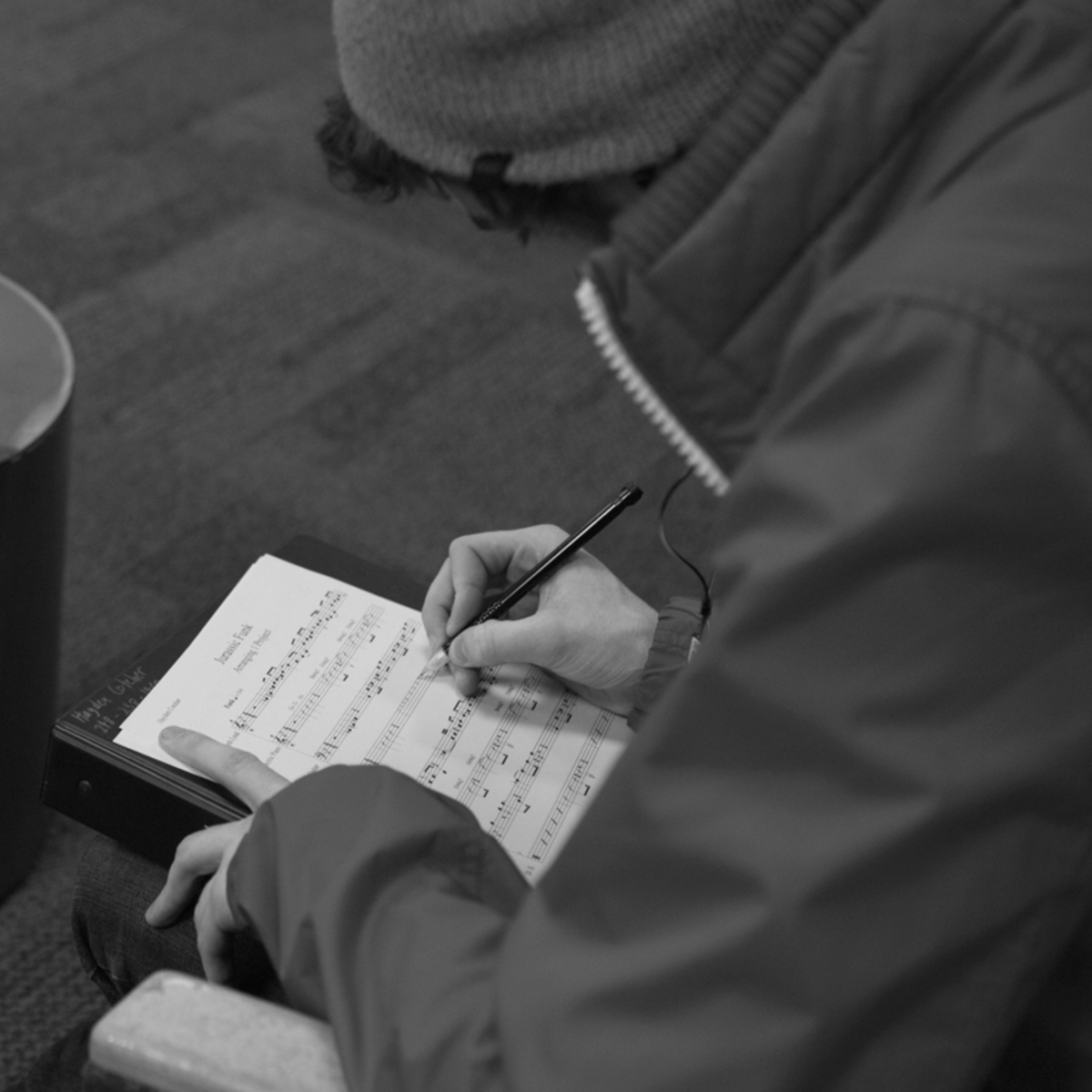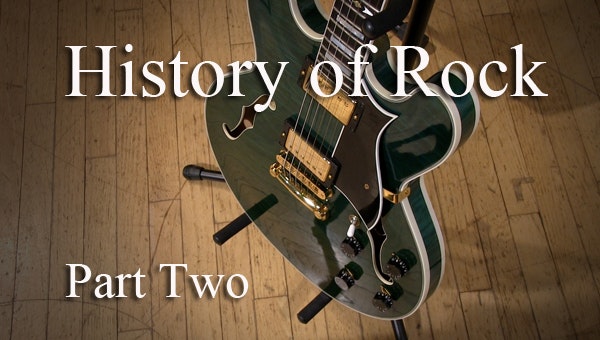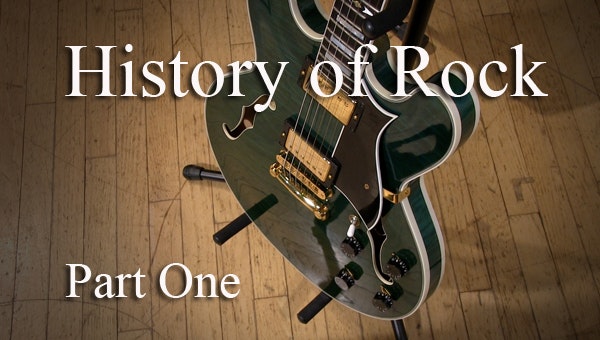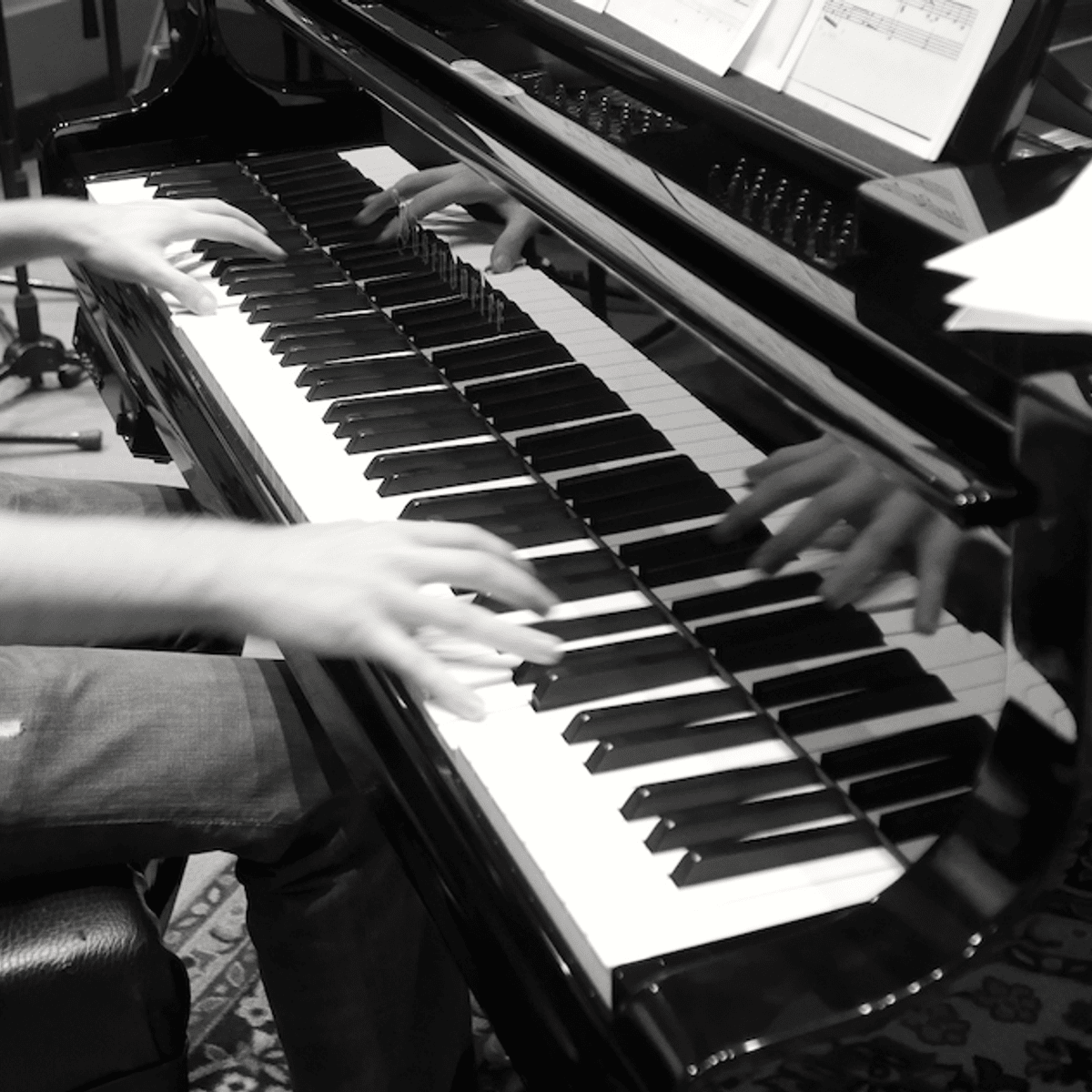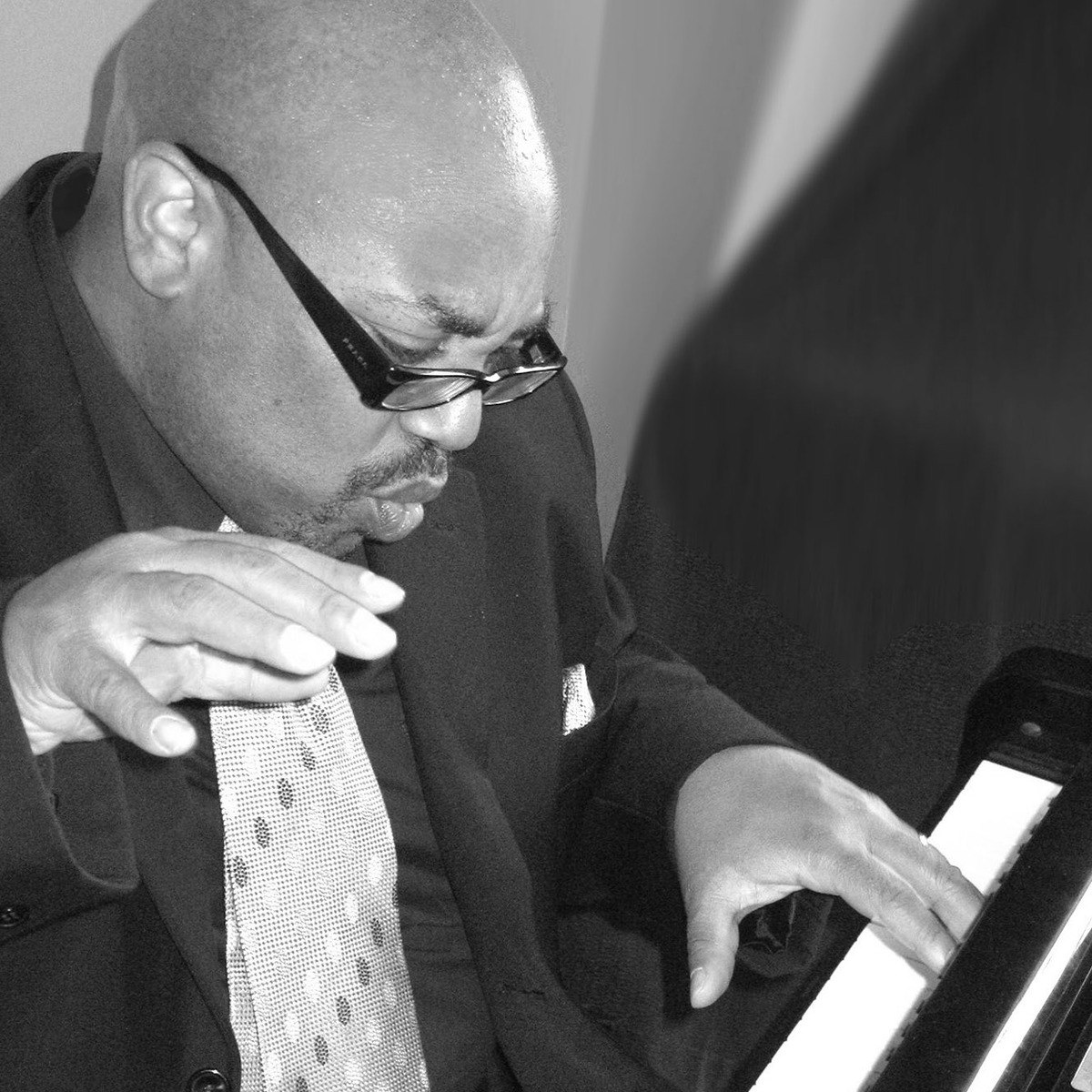Music Librarian
A Career as a Music Librarian
A Music Librarian bridges the worlds of music and information science, managing and providing access to musical materials. This specialized role involves curating collections of scores, recordings, books, and digital files, making them discoverable and usable for musicians, students, researchers, and the public. It's a career that blends a passion for music with strong organizational, research, and technical skills.
Working as a Music Librarian can be deeply rewarding. You might find yourself handling rare manuscripts, assisting a conductor in finding the perfect score, or helping a student explore the history of jazz. It's a role that directly supports musical creation, performance, and scholarship, placing you at the intersection of artistic practice and knowledge preservation.
Introduction to Music Librarianship
Music librarianship is a specialized field within library science dedicated to acquiring, organizing, preserving, and providing access to music-related materials. This includes not just printed scores and books about music, but also sound recordings, video recordings, manuscripts, digital music files, and related archival materials. The scope extends beyond simply managing a collection; it involves actively supporting the musical life and research needs of a community.
This field combines expertise in music history, theory, and performance practices with the principles and techniques of librarianship. Music librarians act as custodians of musical heritage, ensuring that valuable resources are protected and accessible for current and future generations. They play a vital role in facilitating music education, research, and performance.
Definition and Scope
At its core, music librarianship involves managing music collections and providing specialized information services related to music. This encompasses a wide range of materials, including scores (printed and digital), performance parts, recordings in various formats (vinyl, CD, digital audio files), books about music and musicians, periodicals, microforms, and archival documents like composers' manuscripts or correspondence.
The scope is broad, covering all genres and periods of music, from classical and jazz to folk, popular, and world music. Music librarians often develop deep subject expertise in specific areas while maintaining a general understanding of the wider musical landscape. They serve diverse user groups, including performers, composers, students, educators, researchers, and the general public.
The field increasingly involves managing digital resources, dealing with copyright complexities, and utilizing technology for cataloging, preservation, and access. It requires a blend of traditional library skills and specific musical knowledge.
Key Work Environments
Music librarians work in various settings, each with its unique focus and user base. Academic libraries, such as those in universities and music conservatories, represent a major employment area. Here, librarians support the curriculum, faculty research, and student performance needs, often managing extensive research collections.
Performing arts organizations, like symphony orchestras or opera companies, employ librarians to manage their performance libraries. This involves acquiring scores and parts, ensuring they are correctly marked for performance, distributing them to musicians, and handling licensing and rental agreements. Public libraries may also have dedicated music departments or librarians who manage collections geared towards broader community interests, including popular music recordings and instructional materials.
Other potential environments include radio and television stations, music publishers, archives, museums, and historical societies. Some music librarians specialize further, focusing on specific formats like sound archives or working with rare materials and special collections.
Role in Preserving Cultural Heritage and Supporting Research
Music librarians are crucial stewards of musical cultural heritage. They identify, acquire, and preserve materials that document musical traditions, historical periods, and the work of composers and performers. This includes safeguarding rare or unique items like original manuscripts, early editions of scores, and fragile recordings.
Their work in organizing and describing these materials makes them accessible for research. By creating detailed catalog records and finding aids, music librarians enable scholars to discover and utilize resources for historical musicology, ethnomusicology, music theory analysis, and performance practice studies. They often provide specialized reference assistance, guiding researchers through complex collections.
Furthermore, music librarians contribute to preservation efforts, recommending appropriate storage conditions and conservation treatments. Increasingly, this involves digital preservation strategies to ensure the long-term survival and accessibility of digital music files and digitized analog recordings, a significant challenge in the digital age.
Distinction Between General Librarianship and Music-Specific Roles
While sharing core principles with general librarianship, music librarianship requires specialized knowledge and skills. A general librarian might catalog a book about Beethoven, but a music librarian understands the nuances of cataloging different editions of a Beethoven symphony score, sound recordings of its performances, or related manuscript materials. This demands familiarity with music-specific cataloging rules, formats, and terminology.
Music librarians need a strong background in music history, theory, and often performance practice to effectively select materials, assist users, and understand the context of their collections. Knowledge of music notation, different types of scores (full, miniature, vocal), and musical terminology is essential for daily tasks.
They also grapple with unique challenges, such as the complexities of music copyright, the preservation needs of diverse audio formats, and the specific requirements of performers needing parts for ensemble music. This specialized expertise distinguishes them from general librarians and allows them to provide tailored services to the music community.
Roles and Responsibilities of a Music Librarian
The daily work of a music librarian is multifaceted, combining traditional library tasks with music-specific expertise. Responsibilities vary depending on the type and size of the library, but generally encompass collection development, organization, preservation, and user services tailored to musical resources.
These professionals ensure that musical scores, recordings, and literature are not only acquired and maintained but also made readily accessible and understandable to patrons. They often serve as key resources for performers seeking repertoire, students researching music history, or faculty developing course materials.
Cataloging and Preserving Rare Scores/Recordings
A core responsibility is organizing and describing music materials so they can be found. This involves cataloging scores, recordings, books, and digital files according to established standards, such as Resource Description and Access (RDA) and MARC formats, often using specialized music fields and vocabularies. Cataloging music requires attention to detail regarding composers, performers, editions, arrangements, and instrumentation.
Preservation is equally critical, especially for rare or fragile materials. Music librarians assess the condition of items, recommend appropriate housing (acid-free folders, climate-controlled environments), and manage conservation treatments or reformatting projects (like digitizing deteriorating recordings). They must stay informed about best practices for preserving both physical media (paper, vinyl, magnetic tape) and digital files.
This work ensures that unique musical artifacts survive and remain usable. Handling rare scores or early recordings connects librarians directly to music history.
For those interested in the foundational principles of describing resources, understanding RDA is key. Some library systems offer specific tools and documentation to aid in this process.
record:20
record:37
record:30
record:24
Curating Digital Music Databases
With the rise of digital music, curating electronic resources is increasingly important. Music librarians select, subscribe to, and manage access to online databases of streaming audio and video, digital scores (like those found on platforms mentioned in recent articles), and scholarly music journals.
They evaluate the content, functionality, and licensing terms of these resources to ensure they meet user needs and fit within budget constraints. Providing seamless access often involves troubleshooting technical issues and managing authentication systems. They also play a role in creating and managing institutional digital repositories for music, such as digitized local collections or university recordings.
This aspect of the job requires technological savvy and an understanding of the evolving digital landscape, including trends in streaming services and online music platforms. While digital platforms offer convenience, librarians must balance them with physical collections and address concerns about long-term access and ownership, especially with subscription models.
record:1
record:2
Supporting Academic Researchers and Performers
A significant part of a music librarian's role, particularly in academic or performance settings, is providing expert assistance to users. They help researchers navigate complex bibliographic tools, locate obscure scores or recordings, and identify relevant scholarly literature for their studies in musicology, theory, or ethnomusicology.
For performers, librarians locate specific editions of scores and performance parts, research performance practice issues, and help find repertoire suitable for particular instruments or ensembles. In orchestral libraries, this involves preparing and distributing parts, ensuring accuracy, and managing bowing markings or other performance annotations.
This support requires strong research skills, deep musical knowledge, and effective communication abilities. It's often one of the most rewarding aspects, directly contributing to scholarship and artistic creation.
Managing Copyright Compliance for Musical Works
Navigating music copyright is a complex but essential responsibility. Music librarians must understand copyright law as it applies to scores, recordings, and performances, particularly concerning issues like fair use, public domain, performance rights, and synchronization licenses.
They advise users on copyright restrictions, help secure permissions for performances or reproductions when necessary, and ensure the library's own practices (e.g., digitization projects, course reserves) comply with the law. This is especially challenging in the digital era with streaming, online sharing, and international works.
Staying current with evolving copyright legislation and best practices is crucial. This often involves consulting legal resources, participating in professional development, and liaising with institutional legal counsel.
These courses provide a foundation in understanding the legal frameworks surrounding creative works, which is vital for music librarianship.
Formal Education Pathways
Entering the field of music librarianship typically requires a specific combination of education in both music and library science. Employers generally seek candidates who possess not only the technical skills of librarianship but also a deep understanding of music history, theory, and repertoire.
Formal education provides the foundational knowledge and credentials necessary for most professional positions. The path often involves obtaining degrees in both disciplines, demonstrating a commitment to both the artistic and informational aspects of the career.
Undergraduate Degrees in Music or Related Fields
A strong undergraduate background in music is usually the first step. A bachelor's degree in music (e.g., music history, music theory, music performance, music education) provides the essential subject expertise needed to work effectively with music materials and assist users. This foundational knowledge is often considered a prerequisite for advanced study in music librarianship.
While a music degree is most common, a degree in a related liberal arts field combined with significant musical training and experience might also be acceptable, particularly if the candidate demonstrates substantial musical knowledge. Coursework in music history covering various periods and genres, music theory, and familiarity with different types of musical scores is highly beneficial.
Employers look for evidence of a broad musical education. Knowledge of foreign languages, especially German and Romance languages like French or Italian, is also highly valued due to the international nature of music publishing and scholarship.
These courses offer foundational knowledge in music theory and history, which are crucial for aspiring music librarians.
MLIS (Master of Library and Information Science) Requirements
The standard professional qualification for librarians in the United States and Canada is a Master's degree in Library and Information Science (MLIS) or a related equivalent (MLS, MSLS, MIS) from a program accredited by the American Library Association (ALA). This degree provides training in the core principles and practices of librarianship, including cataloging, collection development, reference services, information technology, and library management.
For aspiring music librarians, it is advantageous to attend an MLIS program that offers specialization, coursework, or internship opportunities in music librarianship. Some universities have well-established music libraries and faculty with expertise in the field, providing valuable hands-on experience and mentorship.
The MLIS degree equips candidates with the necessary library-specific skills, complementing their undergraduate music knowledge. The combination of a music background and an ALA-accredited MLIS is the most common educational requirement for professional music librarian positions.
record:5
record:15
Specialized Music Cataloging Certifications and Training
Beyond the MLIS, specialized training in music cataloging is highly beneficial and sometimes required. Music materials have unique characteristics that demand specific cataloging rules and practices, often using standards like RDA and specialized MARC fields. Workshops, webinars, and courses focusing on music cataloging are offered by professional organizations like the Music Library Association (MLA) and through some library schools or regional consortia.
While formal certifications specifically for music cataloging are less common than broader library certifications, completing intensive training programs or workshops demonstrates specialized expertise. Organizations like the MLA occasionally offer resources or certificates related to specific skills or standards.
Continuous learning is essential, as cataloging standards and technologies evolve. Proficiency in music cataloging significantly enhances employability and effectiveness in the role.
record:35
PhD Opportunities in Music Information Retrieval or Related Fields
For those interested in advanced research, leadership roles in large institutions, or academic faculty positions combining librarianship and scholarship, a PhD may be beneficial. While not typically required for most practitioner roles, a doctorate can open doors to specialized research areas or administrative positions.
Relevant doctoral fields might include library and information science with a focus on music, musicology, ethnomusicology, or emerging fields like Music Information Retrieval (MIR). MIR, in particular, blends music, computer science, and information science to develop methods for searching, analyzing, and retrieving music data, an area of growing importance with the expansion of digital music collections.
A PhD requires significant commitment and is generally pursued by those aiming for careers heavily focused on research, teaching, or high-level administration within academic or research libraries.
Online Learning and Skill Development
Beyond formal degrees, continuous learning is vital in music librarianship, especially given the rapid evolution of technology and information standards. Online courses and resources offer flexible and accessible ways to acquire new skills, deepen existing knowledge, and stay current with industry trends. This is particularly valuable for those transitioning into the field or seeking to enhance their qualifications.
OpenCourser is an excellent platform for discovering relevant online learning opportunities across various providers. You can search for courses on metadata, digital preservation, specific software, or broader topics in music and library science, tailoring your learning path to your specific needs and career goals.
Metadata Standards Training for Audio Formats
Effective description and discovery of music resources, especially audio recordings, rely on robust metadata. Music librarians need proficiency in various metadata standards beyond general library cataloging, including those specific to audio and digital objects. Standards like MARC are fundamental, but understanding schemas like MODS (Metadata Object Description Schema), Dublin Core, or PBCore (developed for audiovisual materials) is increasingly important for digital collections.
Online courses and workshops can provide focused training on these standards, covering their structure, application, and best practices for describing audio materials. Learning about embedded metadata in audio files (e.g., ID3 tags) and linked data principles can also enhance discoverability in the digital realm.
This knowledge is crucial for creating high-quality catalog records and ensuring digital audio collections are well-organized and accessible.
Digital Preservation Techniques for Analog Recordings
Preserving audio heritage often involves digitizing analog formats like vinyl records, cassette tapes, or reel-to-reel tapes, which are prone to degradation. Music librarians involved in archival work or special collections need knowledge of digital preservation techniques specific to audio.
This includes understanding digitization workflows, selecting appropriate hardware and software, choosing suitable digital file formats (e.g., WAV, FLAC for preservation masters), managing digital storage, and ensuring long-term file integrity through checksums and format migration strategies. Online courses or workshops from archival organizations often cover these technical aspects.
Developing these skills helps ensure that valuable sound recordings are not lost due to media obsolescence or deterioration. It's a critical area as libraries grapple with large backlogs of analog materials needing preservation.
record:17
record:28
record:22
record:32
Music Notation Software Proficiency
Familiarity with music notation software, such as Finale, Sibelius, or Dorico, is a valuable skill for music librarians. While not always required for direct use, understanding how this software works helps in assisting users, evaluating digital scores created with these tools, and potentially creating musical examples for instructional purposes.
Some libraries might use notation software for minor corrections or modifications to scores (within copyright limits) or for creating custom arrangements for specific needs. Online tutorials and courses offer training on these software packages, ranging from beginner to advanced levels.
Proficiency can enhance a librarian's ability to support composers, arrangers, and performers who use these tools extensively.
This book offers guidance on using a popular free notation software.
Building Portfolio Projects with Open-Access Archives
For those new to the field or seeking to demonstrate practical skills, creating portfolio projects using open-access music archives can be highly effective. Platforms like the Internet Archive's audio collections, IMSLP Petrucci Music Library, or institutional repositories often provide materials that can be used for practice cataloging, metadata creation, or even small digital curation projects.
Documenting these projects—detailing the standards used, the challenges faced, and the solutions implemented—creates tangible evidence of skills for potential employers. This hands-on experience is invaluable, bridging theoretical knowledge from coursework with real-world application.
Online learning can guide project development, offering frameworks for digital exhibits, metadata enhancement initiatives, or digital preservation planning based on open resources. Such projects demonstrate initiative and practical competence.
Career Progression and Advancement
A career in music librarianship offers various pathways for growth and specialization. Advancement often depends on gaining experience, developing specialized skills, pursuing further education or professional development, and demonstrating leadership potential. The field accommodates both those seeking traditional institutional careers and those interested in related roles in archives or the private sector.
Understanding the typical career trajectory can help individuals plan their professional development and identify opportunities for advancement. Networking through professional organizations like the Music Library Association (MLA) is also crucial for career growth.
Entry-Level Roles: Assistant Music Librarian
Entry-level positions often carry titles like Assistant Music Librarian, Music Library Assistant, or Project Archivist (for specific grant-funded initiatives). These roles typically involve supporting senior librarians in various tasks, such as basic cataloging, processing new materials, providing reference assistance at the desk, managing circulation, and assisting with collection maintenance.
These positions provide essential hands-on experience and exposure to the diverse operations of a music library. They are crucial stepping stones for recent graduates with an MLIS and a music background to build their practical skills and professional network.
While demanding foundational knowledge, entry-level roles offer opportunities to learn specific institutional workflows and technologies. Strong performance and initiative in these roles can lead to greater responsibilities and opportunities for promotion.
Mid-Career: Departmental Leadership in Academic Libraries
With several years of experience, music librarians can advance to mid-career roles with increased responsibility. This might involve becoming a Head of Public Services, Head of Technical Services (cataloging/acquisitions), or a specialized curator (e.g., Sound Archives Curator) within a larger music library.
These positions often involve supervising staff, managing budgets for specific areas (like collections or services), developing policies and procedures, leading projects, and playing a more significant role in collection development and strategic planning. Strong leadership, communication, and project management skills become increasingly important.
Mid-career professionals often deepen their expertise in specific areas, such as digital librarianship, archival management, or specialized cataloging, and may contribute to the profession through publications or presentations.
Senior Positions: Director of Special Collections or Head Music Librarian
Senior leadership roles include positions like Head Music Librarian, Director of a Music Library, or potentially Director of Special Collections if the music library is part of a larger special collections unit. These roles involve overall responsibility for the library's operations, strategic direction, budget management, staff leadership, and external relations.
These positions require extensive experience, proven leadership abilities, a deep understanding of the field, and often a strong record of professional contribution or scholarship. Senior leaders shape the library's vision, advocate for resources within the larger institution, and represent the library to external stakeholders.
Obtaining such positions often requires a second master's degree (in music) or even a PhD, along with significant administrative experience.
Alternative Paths: Private Sector Audio Archiving or Consulting
The skills developed as a music librarian are transferable to roles outside traditional library settings. Opportunities exist in the private sector, such as working for record labels, film studios, or media companies managing their audio archives and metadata.
Some experienced music librarians may move into consulting, advising institutions or organizations on setting up music collections, developing digital preservation strategies, or implementing specialized library systems. Others might work for library vendors specializing in music resources or technologies.
These alternative paths can offer different challenges and rewards, leveraging specialized knowledge in music, information management, and archival practices in commercial or project-based environments. An entrepreneurial mindset can be beneficial for pursuing consulting work.
Essential Technical and Soft Skills
Success as a music librarian requires a unique blend of technical expertise and interpersonal abilities. While a strong foundation in music and library science is crucial, specific skills are highly valued by employers and essential for navigating the complexities of the role effectively.
Developing both hard and soft skills is key to not only securing a position but also excelling in the field and adapting to its evolving demands. Continuous learning and professional development are important for keeping skills sharp.
Cataloging Standards (RDA, MARC)
Proficiency in cataloging standards is fundamental. Music librarians must be adept at applying Resource Description and Access (RDA) guidelines and using the MARC21 format to describe various music materials accurately and consistently. This includes understanding specific fields and codes used for music, such as those for medium of performance, form of composition, and thematic index numbers.
Attention to detail is paramount, as accurate cataloging ensures resources are discoverable. Familiarity with cataloging utilities (like OCLC Connexion), library management systems (like Alma or Sierra), and authority control principles is also necessary.
Many find cataloging to be a deeply satisfying, puzzle-solving aspect of the job, requiring analytical thinking and precision.
record:15
Acoustics Knowledge for Preservation Environments
For librarians involved in preserving audio recordings or managing performance spaces within the library, a basic understanding of acoustics can be beneficial. Knowing how sound behaves in different environments helps inform decisions about optimal storage conditions for audio media (controlling humidity, temperature, and potential vibrations) and designing listening rooms or performance areas.
While deep expertise in architectural acoustics isn't usually required, awareness of factors affecting sound quality and media longevity is valuable, particularly when working with archival sound recordings or planning facility renovations.
This knowledge bridges the gap between library science and the physical properties of sound and recording media.
Multilingual Capabilities for International Collections
Music is a global language, but the literature about it and the scores themselves are published worldwide. Working knowledge of multiple languages, particularly German, French, and Italian, is highly advantageous and often preferred or required by employers. These languages are prevalent in classical music scores, opera libretti, and scholarly research.
Language skills are essential for cataloging foreign materials accurately, assisting researchers working with non-English sources, and selecting international publications for the collection. Familiarity with other languages relevant to specific collection strengths (e.g., Spanish for Latin American music, Russian for certain repertoires) can also be a significant asset.
Even basic reading proficiency in key languages can greatly enhance a music librarian's effectiveness.
User Education and Outreach Strategies
Strong communication and teaching skills are vital for interacting with users. Music librarians often conduct library instruction sessions, teaching students and researchers how to use specialized music databases, find scores, navigate research methodologies, and understand information literacy concepts within the context of music.
Developing engaging workshops, creating helpful online guides, and providing one-on-one research consultations are common tasks. Outreach skills are also important for promoting library resources and services to the wider community, potentially through organizing exhibits, lectures, or collaborative events.
Being approachable, patient, and able to explain complex topics clearly are key soft skills for user-facing roles.
Industry Trends Impacting Music Librarians
The field of music librarianship is continually shaped by broader technological, social, and economic trends. Staying aware of these developments is crucial for adapting services, managing collections effectively, and planning for the future. These trends present both challenges and opportunities for the profession.
Understanding the changing landscape helps music librarians remain relevant and proactive in serving their communities' evolving needs. Key areas of change include digital technologies, rights management, preservation science, and evolving perspectives on archival practices.
AI-Driven Metadata Generation for Audio Files
Artificial intelligence (AI) is beginning to impact library workflows, including metadata creation. AI tools show potential for automatically generating descriptive metadata for audio files by analyzing characteristics like genre, instrumentation, tempo, and key. This could help libraries process large digital audio collections more efficiently.
However, challenges remain. AI algorithms may struggle with nuanced musical contexts, complex genres, or cultural specificities, and may perpetuate biases present in their training data. Librarians will likely need to oversee, refine, and supplement AI-generated metadata, ensuring its accuracy and cultural sensitivity.
The integration of AI requires careful consideration of ethical implications and the ongoing need for human expertise in description and curation.
record:1
record:2
Blockchain for Rights Management
Blockchain technology is being explored as a potential tool for managing copyright and licensing information for digital music more transparently and efficiently. It could potentially create immutable records of ownership and usage rights, simplifying the complex process of tracking permissions and royalties, especially for streamed or digitally distributed music.
While still largely experimental in the library context, blockchain's potential to streamline rights management could impact how libraries handle licenses for digital resources or provide access to copyrighted materials. Librarians involved in copyright and digital collections may need to monitor developments in this area.
Understanding the basics of blockchain and its potential applications in intellectual property could become relevant for future roles.
Climate-Controlled Storage Innovations
The long-term preservation of physical media, such as paper scores, magnetic tapes, and vinyl records, relies heavily on stable environmental conditions. Advances in climate control technology and sustainable building practices offer new possibilities for creating optimal storage environments that are also energy-efficient.
Music librarians involved in facilities management or preservation need to stay informed about best practices and innovations in HVAC systems, insulation, and monitoring technologies to ensure the longevity of physical collections while potentially reducing operational costs and environmental impact.
This intersects with broader library trends towards sustainability and responsible stewardship of resources.
Decolonization of Archival Practices
A significant trend across libraries and archives is the critical examination and revision of traditional practices through a lens of decolonization and social justice. In music libraries, this involves re-evaluating how collections represent diverse musical traditions, particularly those of marginalized communities, and challenging biases inherent in historical collecting patterns and descriptive practices.
This may involve actively acquiring materials from underrepresented cultures, revising cataloging language to be more respectful and accurate, engaging with communities about the stewardship of their cultural heritage, and promoting more equitable access to resources. It requires ongoing critical reflection and a commitment to inclusive practices.
This movement encourages librarians to be more conscious of power dynamics and historical inequities embedded in library collections and systems.
Challenges in Modern Music Librarianship
Despite the rewards, music librarianship faces several significant challenges in the contemporary environment. Limited resources, complex legal landscapes, and the rapid pace of technological change require librarians to be adaptable, resourceful, and strong advocates for their collections and users.
Acknowledging these challenges provides a realistic perspective for those considering the career. Overcoming them often requires collaboration, innovation, and a commitment to the core values of the profession.
Funding Constraints for Analog-to-Digital Conversion
Many libraries hold vast collections of analog audio and video recordings that are at risk of deterioration or becoming inaccessible due to format obsolescence. Digitizing these materials is crucial for preservation and access, but it is often a costly and time-consuming process requiring specialized equipment and expertise.
Securing adequate funding for large-scale digitization projects is a major challenge for many institutions. Libraries must often compete for limited grant funding or internal resources, making it difficult to address preservation backlogs effectively.
Advocacy and creative fundraising strategies are often necessary to support these critical preservation efforts.
record:27
record:13
Copyright Complexities in Streaming Era
The rise of streaming services and digital distribution has created new layers of complexity for music copyright. Determining rights for streaming audio or video in educational settings, managing licenses for digital score platforms, and understanding international copyright variations pose ongoing challenges.
Librarians must navigate issues like digital performance rights, fair use in online environments, and the terms of service for various digital platforms. The legal landscape is constantly evolving, requiring continuous learning and careful risk assessment.
Providing clear guidance to users while ensuring institutional compliance demands significant expertise and vigilance.
These courses delve into music theory and history, providing context for the materials librarians manage.
Balancing Access vs. Preservation Priorities
Librarians constantly navigate the inherent tension between providing access to materials and ensuring their long-term preservation. Making rare or fragile items available for use increases the risk of damage or loss, while overly restrictive access policies can hinder research and learning.
This dilemma is particularly acute with unique archival materials or deteriorating media. Decisions about handling procedures, digitization priorities, and access methods (e.g., providing digital surrogates instead of original items) require careful judgment, balancing user needs with stewardship responsibilities.
Finding the right balance often involves developing clear policies, educating users, and investing in preservation measures that enable sustainable access.
record:16
Staffing Shortages in Niche Specializations
Finding qualified candidates with the necessary combination of music expertise, library science training, technical skills, and language abilities can be challenging, particularly for highly specialized roles (e.g., ethnomusicology archivist, rare music cataloger). This can lead to staffing shortages in certain areas.
Furthermore, budget constraints in some institutions may limit the number of available positions or lead to consolidation of roles, requiring librarians to cover broader responsibilities. The specialized nature of the field means the overall job market is relatively small compared to general librarianship.
Mentorship programs and professional development opportunities offered by organizations like the MLA aim to cultivate talent and support those entering these niche specializations.
Frequently Asked Questions
For those considering a career as a Music Librarian, several practical questions often arise regarding salary expectations, job prospects, transitioning from related fields, necessary tools, and ways to gain experience. Addressing these common queries can help provide clarity and inform career decisions.
What are the typical salary ranges?
Salaries for music librarians vary based on factors like geographic location, type of institution (academic, public, orchestra), level of experience, and specific responsibilities. According to recent data from sources like ZipRecruiter (as of early 2025), the average annual salary in the U.S. is around $65,193, with a common range between $51,500 (25th percentile) and $75,000 (75th percentile). Top earners can exceed $94,000.
However, ranges can differ significantly by region and employer type. For instance, salaries in major metropolitan areas or at large research universities may be higher. An academic librarian position at NYU listed a range of $80,000 - $100,000, while UNC Libraries mentioned a minimum of $70,860 for a Music and Performing Arts Librarian. Talent.com suggests an average of $60,000, with entry-level starting lower and experienced workers potentially earning over $100,000. It's important to research salary expectations for specific locations and types of institutions.
record:4
record:11
record:9
record:14
record:12
record:36
What is the demand outlook in streaming-dominated markets?
The job outlook for librarians in general is projected to grow about as fast as the average for all occupations (around 3% from 2023-2033, according to the U.S. Bureau of Labor Statistics). However, the field of music librarianship is relatively small and specialized, meaning competition for positions can be keen.
While streaming impacts how users access music, the need for skilled professionals to manage, preserve, and provide access to both digital and physical collections persists. Libraries continue to play vital roles in supporting research, education, and performance, requiring librarians with specialized music knowledge. The specific demand may fluctuate based on institutional funding and priorities, but the unique skill set remains valuable.
Networking and gaining practical experience through internships or volunteer work can significantly improve job prospects in this competitive field.
record:29
record:34
record:23
record:33
How can one transition from a performance career?
Transitioning from a performance career to music librarianship is a common path. Performers possess deep musical knowledge, familiarity with repertoire, and an understanding of musicians' needs – all valuable assets for a music librarian. The key is supplementing this musical expertise with library-specific skills and qualifications.
Pursuing an MLIS degree is typically the most crucial step. Gaining library work experience, even part-time or volunteer, during or before the MLIS program is highly recommended. Highlighting transferable skills from a performance career (discipline, attention to detail, project management from organizing recitals, communication) in applications and interviews is also important.
Acknowledging the shift from a creative/performance focus to a service/organizational focus is part of the transition. It can be a rewarding way to remain deeply engaged with music while pursuing a more stable, structured career path. Many find librarianship compatible with part-time performing.
These courses focus on performance and musicianship, areas from which many transition into librarianship.
What are essential software/tools for entry-level roles?
Entry-level music librarians should be comfortable with core library technologies and some music-specific tools. Proficiency with standard office software (word processing, spreadsheets, presentations) is expected. Familiarity with integrated library systems (ILS) or library services platforms (LSP) used for cataloging, circulation, and acquisitions is crucial; examples include Alma, Sierra, or open-source options like Koha.
Knowledge of bibliographic utilities like OCLC Connexion for copy cataloging is often necessary. Basic familiarity with digital audio workstations (DAWs) or music notation software can be advantageous, though not always required. Experience with online databases relevant to music research (e.g., RILM Abstracts, Music Index Online) and digital music/score platforms is also important.
Strong computer literacy and the ability to learn new software quickly are essential assets.
What professional organizations are important for networking?
Engaging with professional organizations is vital for networking, professional development, and staying current in the field. The primary organization in the U.S. is the Music Library Association (MLA). MLA holds annual conferences, publishes a journal (Notes), maintains discussion lists, offers webinars and workshops, and provides job postings.
MLA also has regional chapters that offer local networking and learning opportunities. Internationally, the International Association of Music Libraries, Archives and Documentation Centres (IAML) is the main body, and MLA serves as its U.S. branch. For those specializing in performance libraries, the Major Orchestra Librarians' Association (MOLA) is relevant.
Joining relevant organizations, attending conferences (even virtually), and participating in committees or discussion groups are excellent ways to connect with colleagues and advance one's career.
record:21
record:7
record:19
record:18
record:26
Are there part-time/volunteer opportunities for experience?
Yes, gaining practical experience is crucial, and part-time work or volunteering can be valuable ways to achieve this, especially while pursuing education or exploring the field. Many academic music libraries hire student assistants, offering exposure to library operations. Public libraries or archives may also have volunteer opportunities.
Internships, often integrated into MLIS programs, provide structured, supervised experience. Even short-term project-based work, such as assisting with an archival processing project or a digitization initiative, can build relevant skills and add valuable experience to a resume.
Seek out opportunities in libraries or related cultural heritage institutions with music collections. Demonstrating initiative and gaining hands-on experience can significantly strengthen applications for full-time positions.
Consider exploring OpenCourser's Arts & Culture or specific Music categories to find courses that might supplement practical experience.
record:10
Related Careers and Topics
Understanding related fields can provide context and reveal alternative or complementary career paths. Music librarianship shares common ground with general librarianship, archival work, museum curation, and musicology. Exploring these connections can broaden perspectives and potentially open up different avenues for applying one's skills and interests.
Related Careers
Several careers intersect with or run parallel to music librarianship. A Music Archivist focuses specifically on preserving and providing access to unique historical materials like manuscripts, correspondence, and institutional records related to music. A Music Curator might work in a museum setting, developing exhibits and managing collections of musical instruments or artifacts. A general Librarian role in an academic or public library might involve some music responsibilities, though without the deep specialization. Roles in Digital Asset Management within media companies also draw on similar organizational and metadata skills applied to audio and video content.
Related Topics
Key topics underpinning music librarianship include Musicology and Ethnomusicology, which provide the historical and cultural context for understanding music collections. Cataloging and Metadata Standards (like RDA and MARC) are core technical areas. Digital Preservation is crucial for managing born-digital and digitized materials. Copyright Law, particularly as it applies to music and digital media, is another essential knowledge area. Understanding Information Literacy principles helps in educating users effectively.
Concluding Thoughts
Embarking on a career as a Music Librarian offers a unique opportunity to combine a passion for music with the skills of information management and service. It's a field dedicated to preserving our rich musical heritage and supporting the creation, performance, and study of music. While it requires specialized education and faces contemporary challenges like funding and digital complexities, it provides intellectually stimulating work and the satisfaction of connecting people with the music they seek. For those with musical knowledge, organizational aptitude, and a desire to serve the music community, it presents a fulfilling and stable career path.

